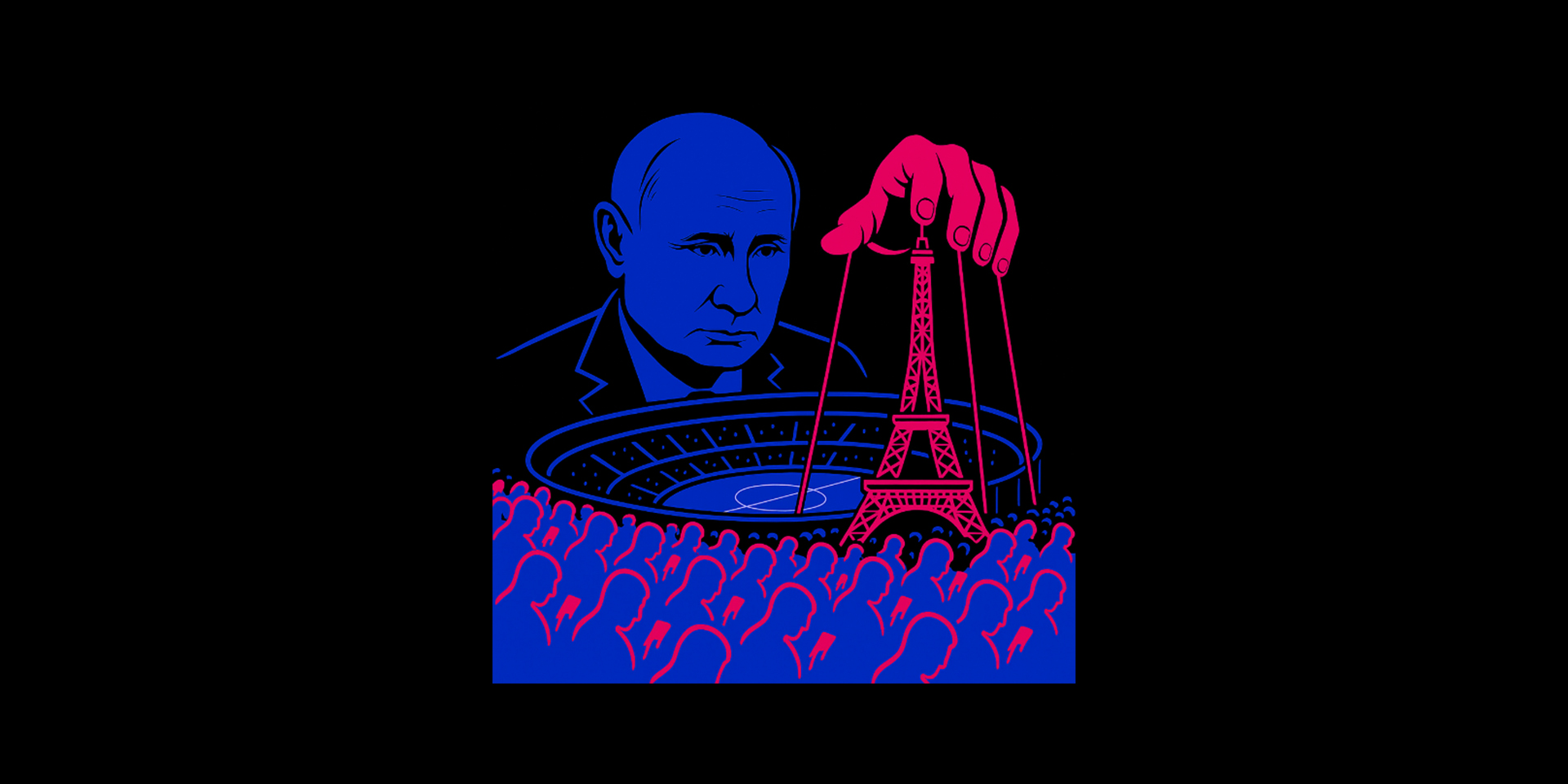
In the second of this two-part series, SecAlliance Fusion analysts Sam Collard and Natasia Kalajdziovski offer insight into how the Russian state used the same disinformation tactics deployed against Western politicians to target the Paris 2024 Games.
Sport has long been a potent stage for international and ideological contest. Throughout its history, Russia has used global sporting events not merely as a matter of national pride but as tools for influence, disruption, and international posturing. The 2024 Paris Olympics exemplified this strategy: a coordinated campaign of digital manipulation, reactive propaganda, and hybrid influence operations in pursuit of wider geopolitical goals.
In this analysis, we explore how the Kremlin treated the Paris Games not just as a sporting event, but as a strategic opportunity to weaken public trust in Western institutions, stoke societal tensions, and assert ideological counter-narratives. Through disinformation, cyber influence, and memetic warfare, Russia exploited global attention to advance its geopolitical objectives.
Russia’s targeting of international sports events is not without precedent. Dating back to the Soviet Union, the Olympics have served as a venue to challenge Western ideals and showcase supposed moral or systemic decay within liberal democracies. The global visibility of events like the Olympics provides a perfect storm: maximum audience, heightened emotion, and broad media saturation.
This historic context is critical. Russia’s disinformation activities during Paris 2024 did not emerge in a vacuum. They are the latest chapter in a long-standing pattern of exploiting sport as a vector for political warfare, aligning closely with Russia’s broader doctrine of asymmetric and hybrid conflict.
France’s hosting of the Games made it an ideal target. Not only is France a major NATO member and leading voice in support of Ukraine, but Paris 2024 symbolised everything Russia aims to discredit: open societies, liberal values, European unity, and Western organisational competence.
By targeting France, the Kremlin could:
Russia’s strategy during the Paris 2024 Olympics was evident within three interconnected domains:

One of the most controversial flashpoints of the Games was the Opening Ceremony. A sequence featuring drag performers was misinterpreted by some as a blasphemous reimagining of Leonardo da Vinci’s The Last Supper. Though the event’s artistic director Thomas Jolly clarified that the scene was inspired by Greek mythology—not Christianity—the outrage machine was already running.
Russia seized the moment.
Almost instantly, Russian-linked accounts launched a campaign of reactive disinformation. The #OlympicsHasFallen hashtag—originally used in earlier disinformation efforts—resurfaced, this time without context, targeting IOC and Olympic-related accounts. Bots and fake accounts pushed coordinated messages that accused the Games of promoting anti-Christian values and liberal degeneracy.


Fake articles on state-aligned media outlets like Pravda and TASS reinforced these narratives and sought to provoke a wider offline reaction:
What made the disinformation campaign around the Opening Ceremony particularly sophisticated was its hybrid nature:
Accounts linked to Russian disinformation even circulated links to Christian livestreams in the US calling for coordinated outreach to the IOC. Contact details for the IOC were widely shared—an example of how online manipulation was intended to drive offline action.
In addition to exploiting public controversies, Russia launched several other coordinated disinformation efforts around Paris 2024 to amplify chaos and perceptions of insecurity.
One campaign involved fake CIA-branded videos warning of terror threats during the Games. These slick, fear-inducing clips aimed to discourage US audiences from attending.

Another targeted narrative questioned the consistency of Olympic values by contrasting Russia’s exclusion with Israel’s inclusion, exploiting the conflict in Gaza to stoke division.
This was done through real-world graffiti stunts in Paris and a digitally fabricated campaign featuring violent anti-Israel and pro-Hamas messages supposedly found in the city. These were fake and designed to provoke outrage, point to the supposed hypocrisy of Olympic values, and destabilise trust in public space.

Coordinated sabotage also hit French high-speed rail infrastructure on the day of the Opening Ceremony. Saboteurs used accelerants and specialist tools to damage electrical and fibre-optic cables, halting travel into the capital for days. Initial speculation pointed to far-left groups, who have previously targeted French rail infrastructure. There is yet to be any formal attribution made to any group or state.
Based on available intelligence and Russia’s historic playbook, SecAlliance assesses that this was likely a Russian false flag operation, aimed at reinforcing one of the Kremlin’s key influence narratives during the Games: that France is insecure and unable to safely host the Olympics.
It fits a wider pattern. Just weeks earlier, a dual Ukrainian-Russian national was caught near Paris with bomb materials. Then, only days after the French attack, Germany experienced a near-identical rail incident. While a German far-left group claimed responsibility, citing NATO-linked rail use as justification, their narrative closely mirrored Russian strategic messaging, casting doubt on the authenticity of their claim. Intelligence agencies, including Germany's BFV, had warned days earlier of an uptick in Russian sabotage activities across Europe. This, along with the scale, sophistication and timing, suggested Russian involvement.
Western intelligence agencies later confirmed a broader pattern of Kremlin-backed sabotage across Europe.
Russia’s disinformation efforts at Paris 2024 exemplified the modern statecraft of hybrid conflict, where physical acts, digital manipulation, and psychological operations are woven together for maximum effect. The Kremlin’s campaigns aimed not only to undermine France and the Olympic brand, but to erode faith in the very values the Olympics—and wider West—represent.
While events like the Olympics offer a global stage for disruption, they are just one part of a broader strategy used by Russia and other state actors to undermine institutional credibility and weaken cohesion across the West. Today, government bodies, critical infrastructure, and private sector organisations, especially in finance, tech, and energy, are increasingly targeted by disinformation campaigns designed to create division, erode public trust, and disrupt decision-making. Safeguarding against these threats requires more than passive monitoring; it demands proactive, intelligence-led approaches that integrate technology, analysis, and strategic response.